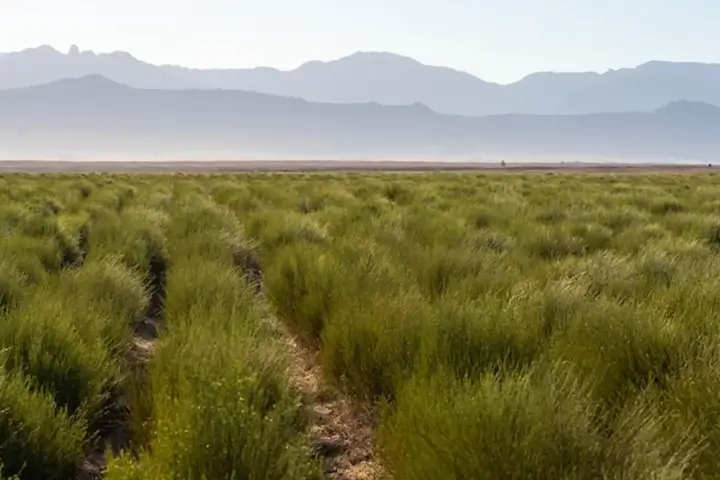
South Africa’s beloved Rooibos tea, known for its distinctive flavor and potential health benefits, has been a source of concern recently due to a series of storms that hit the Cederberg region. However, the good news from the South Africa’s Rooibos Council (SARC) is that the rooibos cultivation fields in the area have largely remained unaffected by the floods.
Cederberg, being the only place in the world where rooibos is commercially viable, is of paramount importance for the global supply of this herbal tea. The recent storms have caused extensive damages in the region, but Rooibos farmers can breathe a sigh of relief as their precious fields have weathered the onslaught.
According to Martin Bergh, the chairperson of SARC, the key factor that has safeguarded the rooibos fields is the deep root system of the plant. Rooibos roots typically extend to a depth of one meter, allowing the plants to draw nutrients and water from deeper levels in the soil. This resilience prevents waterlogged soil from damaging the plants, ensuring their survival even after heavy rainfalls.
However, Bergh also highlighted the challenges faced by some lower-lying fields in the area. Shallow soil levels and the presence of clay at 60-80 cm deep can be detrimental to rooibos plants, leading to plant death in cases of excessive flooding. These areas require careful management to ensure the plants’ well-being.
Despite the impact of the storms on certain fields, the overall outlook for rooibos cultivation in Cederberg remains positive. With more rain predicted for July and beyond, soil moisture levels are expected to remain favorable, allowing farmers to continue planting as late as August. The delicate balance of sun and rain in the region is essential for a stable and healthy Rooibos yield.
The higher-lying rooibos fields on the mountain slopes are expected to benefit from the excessive rainfall. The presence of deep, well-drained soil with low clay levels is conducive to robust growth once temperatures start to rise. This favorable condition presents an opportunity for a bountiful harvest in the future.
Rooibos, scientifically known as Aspalathos linearis, is a broom-like member of the Fabaceae plant family. Its leaves are the primary ingredient used to create the herbal tea that has earned various names such as rooibos tea, bush tea, red tea, or redbush tea.
One of the significant challenges that farmers are likely to face after heavy rains is the control of weeds. Weeds tend to flourish under such conditions, posing a threat to the rooibos fields. Proper weed management becomes imperative to ensure the well-being of the tea plants.
The unique qualities and characteristics of Rooibos from Cederberg have gained recognition worldwide. The European Commission has granted Rooibos the status of a Protected Designation of Origin (PDO) and Geographical Indicator (GI) in the EU register. This prestigious recognition highlights the specificity of its country of origin, providing consumers with authenticity and transparency.
Consumer demand for South Africa’s Rooibos tea has surged since the early 2000s, with stakeholders investing in research to showcase its potential health benefits. The marketing of rooibos tea in South Africa involves a diverse range of channels, including supermarkets, specialty shops, direct marketing, and online platforms.
The popularity of South Africa’s Rooibos tea is not limited to its home country; it is exported in packaged form or in bulk to approximately 60 countries in Asia and Europe. Markets such as Japan, Germany, and the Netherlands have embraced the unique flavors and qualities of Rooibos tea.
The growing awareness of the potential health benefits of Rooibos tea is expected to fuel its popularity not only in South Africa but also globally, ensuring its enduring presence as a beloved herbal infusion for tea enthusiasts worldwide. As Rooibos cultivation fields remain resilient in the face of natural challenges, the future of this remarkable herbal tea remains bright and promising.
Stay updated with the latest farming tips and agriculture industry news from Africa by subscribing to our newsletter. Don’t miss out on valuable insights and updates. Follow us on Twitter, LinkedIn, and Facebook to join our farming community and stay connected with us.



















